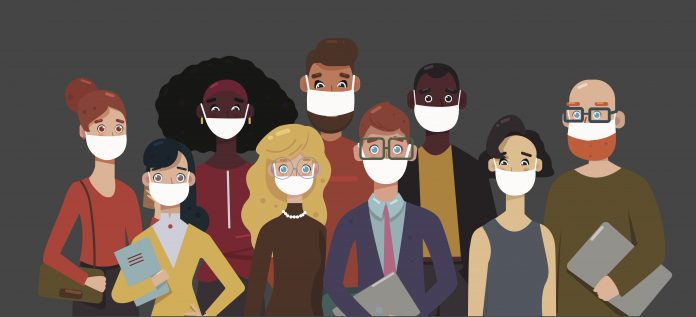According to a new Flinders University survey, young people, women and those on lower incomes fared worst in maintaining their wellbeing during Covid-19 lockdowns in South Australia.
The study measured the impact of the Covid-19 pandemic on the wellbeing of South Australians using an innovative wellbeing framework that reflects on various dimensions of life developed by Flinders University researchers and endorsed by the United Nations Development Programme.
The voluntary online survey comprising 56 questions related to individual wellbeing was distributed via social media from August to September 2020. There were 579 responses, providing a statistically representative sample for South Australia with 99% confidence and a 5% margin of error.
The results show that most respondents (71%) were able to maintain overall wellbeing during the pandemic, but more than a half of respondents could not maintain wellbeing in psychological and emotional health.
The drivers of an inability to maintain overall wellbeing reveals that low-income individuals, younger respondents (aged 18-24) suffered disproportionate hardships when compared to the rest of the state’s population.
Results Summary:
- 79% of those aged 65 and over maintained overall wellbeing compared to 53% for 18-24 age group.
- Community vitality wellbeing is strong across South Australia.
- 90% of respondents with pets said their pets were a benefit to their wellbeing during Covid-19.
- 28 percentage point drop in those who felt highly hopeful or positive about life before and after the period of self-isolation/lockdown for Covid-19.
- Psychological health and physical health were the aspects most heavily impacted among those who could not maintain wellbeing.
- 92% were accepting of the Government policies on managing the Covid-19 pandemic.
- 64.6% rated the performance of the South Australian Government as high or very high.
Among respondents who could not maintain overall wellbeing:
- 93% reported feeling depressed or anxious.
- 78% experienced problems sleeping.
- 86% had problems concentrating.
- 63% reported a weekly income of less than the minimum wage.
- 60% experienced interruption to ongoing health related treatment due to restrictions.
- 38% had to cut down the consumption of usual food items.
- 35% partook of more alcohol and/or tobacco than usual.
- More than one-third of respondents (38%) reported an increase in interpersonal conflict in their household.
Chief Investigator Associate Professor Udoy Saikia says the analysis of the survey data presents some concerning results about the mental health impact of the pandemic, but also offers an insight into the benefits of parks in SA communities.
“While the psychological health dimension of wellbeing was hit the hardest due to Covid-19, other dimensions of wellbeing such as “community vitality” and “relationship with the environment” have played a crucial role in enabling South Australians to maintain their wellbeing.”
“For example, 63% of the respondents mentioned that during Covid-19, they were able to draw on the support of friends and family to help with difficult situations and share with them their worries and concerns. Similarly, 84 per cent of the respondents said that the use of outdoor spaces contributed to maintaining their wellbeing during Covid-19”.









